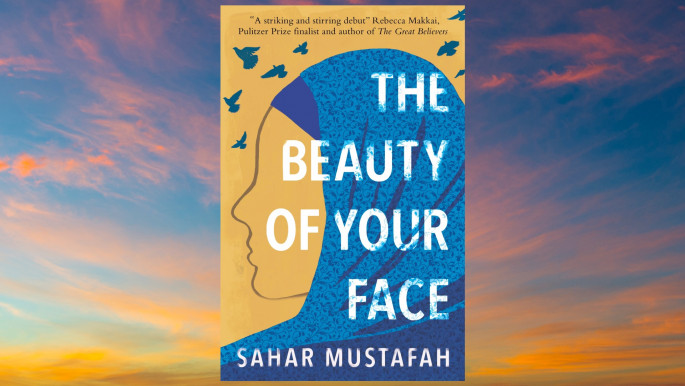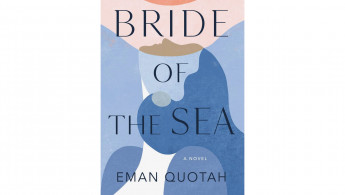Bride of the Sea: A captivating tale of being caught between colliding cultures and countries
Muneer and Saeedah are a young Saudi couple living in Cleveland, Ohio. While awaiting the birth of their first child, Hanadi, they agree to annul their marriage, and Muneer moved back to Saudi Arabia.
Following the divorce, Saeedah experiences several bouts of paranoia due to the Saudi laws governing child custody: the mother's custody rights are valid until a male child turns nine or a female child turns seven.
The rule and Saeedah's paranoia prompted her to disappear with Hanadi and thus, this captivating story of separation, colliding cultures, religion, and family begins.
The story spans forty-eight years and is set in multiple states in the United States of America and Jidda/Jeddah, Saudi Arabia.
It started with a slow pace – not the excruciating slowness that causes one to click their tongue, but one resembles how spices simmer into food cooked on low heat. With this writing style, Quotah keeps readers spell-bound to the mystery surrounding Saeedah's decisions.
 |
The story spans forty-eight years and is set in multiple states in the United States of America and Jidda/Jeddah, Saudi Arabia |  |
Relatedly, Bride of the Sea features a description of Saudi Arabia and its culture in a way that is not often seen in media form. She describes many aspects of the culture – from food, clothing, values, and everyday living – with a neutrality that portrays it as just that: people's cultures. She does not employ the common tone that seeks to paint Saudi culture as "savage" or "backwards".
Quotah's tone is also reflected in how Muneer discusses the kingdom: the tone of one who loves their country enough to recognise its strength and speak against its shortcoming.
 |
|
| Read more from TNA's Book Club: The Beauty of Your Face by Sahar Mustafah |
Equally important is how Quotah writes history into this story.
The Iraqi invasion of Kuwait, the American invasion of Iraq, and 9/11 — even the arrest of the brave Riyadhi women whose actions were amongst the many that led to the 2018 lift on the ban against women driving in Saudi Arabia — are all blended seamlessly into the stories of the characters.
This removes the uneasiness that can sometimes accompany random mention of historical events that contribute nothing to works of fiction. In addition to this, many aspects of the story include ironies that are so subtle they can easily be missed.
A case in point is the scene where Hanadi and her friend, Summer experience harassment and catcalling while shopping in a souq in their abayas; or how Hanadi ends up making a decision that is similar to the one she refuses to forgive her mother for.
Another particularly salient theme in Bride of the Sea lies in the characters' reactions over the many years that Saeedah kept Hanadi hidden from Muneer and their extended family.
Understandably, Saeedah makes a mistake by depriving Hanadi of a father, but the phrase "how could she keep your daughter away from you?" is repeatedly uttered by other characters to Muneer, as if what the Saudi law of custody meant to Saeedah as a mother accounts for nought.
This glaring cognitive dissonance begs many questions: one of which is that to what extent does the goodness of a person holds when the systems that facilitate that goodness is simultaneously oppressive to another person?
Admittedly, Muneer was a good partner to Saeedah but after the divorce, even he expresses an entitlement that is birthed from a custody law that gives Saeedah only seven years to fully mother her daughter.
 |
She describes many aspects of the culture with a neutrality that portrays it as just that: people's cultures. She does not employ the common tone that seeks to paint Saudi culture as 'savage' or 'backwards' |  |
Additionally, Bride of the Sea explores some circumstances around divorce in Arab communities rarely seen in Western societies. For context, Muneer and Saeedah are first cousins; this means Muneer's mother is Saeedah's aunt and mother-in-law and vice versa.
Naturally, with the annulment and Saeedah's disappearance, a more intense rift is created between both families – the likes of which is uncommon in the western context. This is meticulous because of the heavy importance that the Saudi culture – Arab culture generally – places on family relation; something even Hanadi comes to realise can be both a blessing and a curse.
For all the interesting and captivating experiences contained within Bride of the Sea, the story would have benefitted greatly if more of Saeedah's perspectives were present. Little is known about thought processes that leads to her move to the United States, her marriage to Muneer, her pregnancy and her disappearance with Hanadi.
However, this is possibly an attempt at reflecting on the indifference to the emotions of divorced Saudi mothers. Nevertheless, Quotah explores religious conversion through Saeedah's perspective and if nothing else, this small act puts an additional dent in the stereotype that Arabs automatically equal Muslim.
Aisha Yusuff is a book reviewer with a focus on African and Muslim literature. Her work can be found on @thatothernigeriangirl as well as in digital magazines like Rewrite London.
Follow her on Twitter: @allthingsaeesha
The New Arab Book Club: Click on our Special Contents tab to read more book reviews and interviews with authors:
 |



